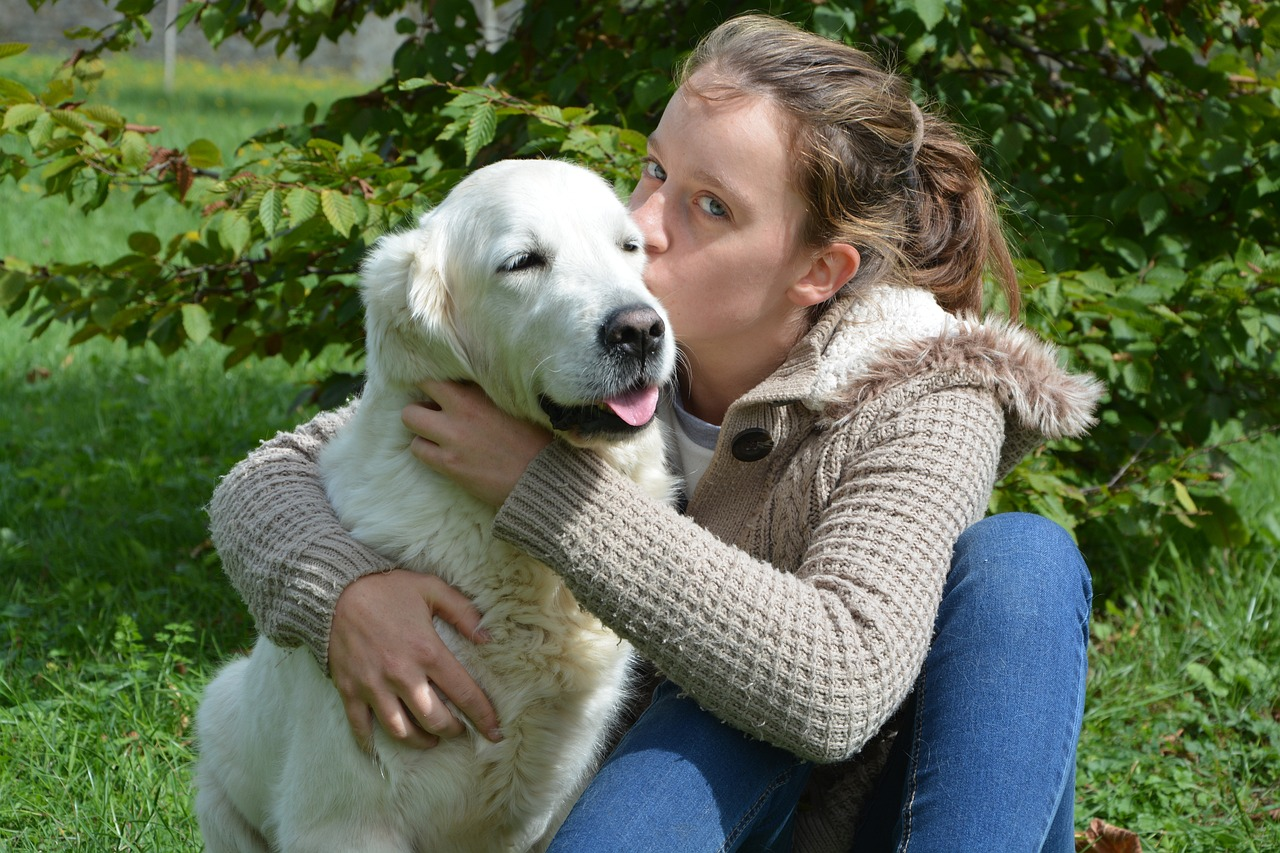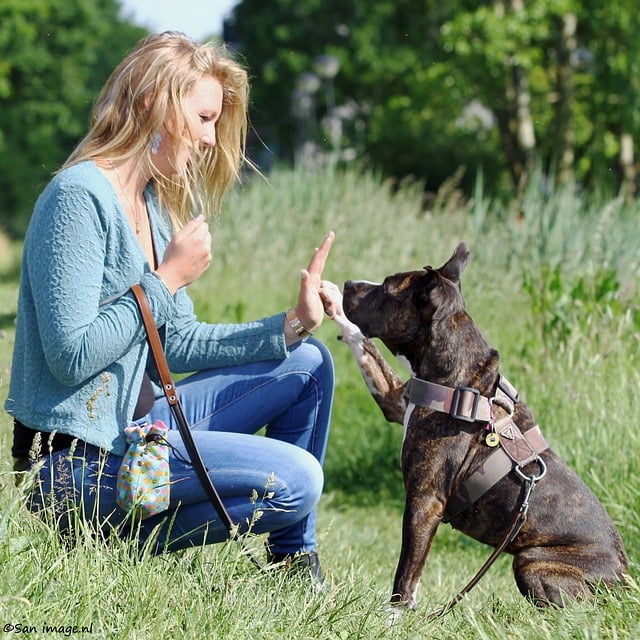You envisioned the joy of welcoming a new puppy into your family—a furry bundle of energy, love, and unbridled enthusiasm. Your dream was to have a sweet, loving companion, one that would be smart, friendly, and well-behaved enough to take anywhere. The idea was simple: a perfect pet that would make every day more enjoyable. However, as time went on, your dream of the ideal pet seemed to slip away, leaving you pondering, “What happened?”
Embarking on the journey of dog ownership is a delightful adventure, but it comes with its challenges. Many pet owners find themselves at a crossroads, questioning why their once-promising vision of a well-behaved and happy four-legged friend has taken a detour. The answer often lies in the realm of dog training.

Ask Yourself These 7 Questions
Before delving into the world of dog training benefits, take a moment to reflect on these seven questions. Your answers may unveil insights into your dog’s behavior and the potential benefits that training can bring.
1. Does your dog exhibit new or undesirable behaviors?
Your once well-mannered pup might be displaying unexpected behaviors. Identifying these changes is the first step toward understanding the training needs of your canine companion.
2. Have you noticed a decline in your dog’s obedience to basic commands?
A well-trained dog should respond promptly to basic commands. If obedience is slipping, it could be time for a refresher to strengthen the communication between you and your furry friend.
3. Is your dog exhibiting signs of separation anxiety or behavior problems?
Dogs, like humans, can experience separation anxiety or develop behavior issues. Training can provide the tools to address these challenges and create a more harmonious living environment.
4. Are you struggling with your dog’s behavior in different situations?
A well-behaved dog should adapt to various environments and situations. If your dog is struggling, training can help them become more adaptable and confident.
5. Do you find it challenging to control your dog in public places or around new people?
A well-socialized dog is a joy to be around. If your canine friend tends to act out in public or around strangers, training can enhance their social skills and ensure positive interactions.
6. Are you concerned about your dog’s physical and mental stimulation?
Dogs, regardless of age, need both physical and mental exercise. Training not only provides the necessary stimulation but also fosters a stronger bond between you and your pet.
7. Is your dog exhibiting destructive behaviors or bad habits?
Destructive behaviors can be a sign of boredom or unmet needs. Training offers an outlet for energy and helps channel your dog’s instincts in a positive direction.

Take This Quick Quiz to See How Well You Know Your Dog Alternatively, discover your dog’s training needs through this quick quiz. Choose the answers that best describe your dog’s behavior.
When you ask your dog to sit, do they respond immediately, after a moment, or not at all?
a) Immediately
b) After a moment
c) Not at all
How does your dog react to meeting new people or other dogs?
a) Excited and friendly
b) Cautious but curious
c) Aggressive or fearful
Does your dog follow basic commands such as “stay,” “come,” and “leave it”?
a) Consistently
b) Sometimes
c) Rarely or never
What is your dog’s behavior when left alone at home?
a) Calm and relaxed
b) Mildly anxious
c) Destructive or excessively anxious
How does your dog behave in new environments or situations?
a) Adapt quickly and confidently
b) Somewhat hesitant or anxious
c) Overwhelmed and fearful
Tally up your answers and find out where your dog stands on the training spectrum. Whether you chose option ‘a’ or ‘c’ more frequently, the results will shed light on areas where training can make a significant difference.

DOG TRAINING BENEFITS: MORE THAN JUST OBEDIENCE
Now that you’ve assessed your dog’s needs, let’s explore the myriad benefits of dog training. It’s more than just teaching your furry friend to sit and stay; it’s about creating a well-behaved, confident, and happy companion.
Mental Stimulation
Training sessions provide essential mental stimulation for your dog. Just like humans, dogs thrive on engaging their brains. This mental exercise is particularly crucial for preventing boredom and ensuring a content and well-balanced pup.
Stronger Bond
A well-trained dog forms a stronger bond with its owner. The communication established during training fosters a deeper connection, creating a relationship built on mutual respect and understanding. This bond extends beyond the training sessions, influencing every aspect of your shared life.
Social Skills
Socialization is a key component of dog training. Exposure to new people, environments, and other dogs teaches your furry friend how to navigate different situations with grace. This results in a socially adept and well-adjusted canine companion.
Confidence Boost
Training instills confidence in your dog. As they master new skills and behaviors, their self-assurance grows. This newfound confidence positively impacts their overall demeanor and how they approach various challenges.
Safer Outings
A well-trained dog is a joy to take out in public. Whether you’re visiting a dog park, strolling through your neighborhood, or meeting friends, the assurance that your dog will behave appropriately makes every outing more enjoyable.

LACK OF TRAINING: THE CONSEQUENCES
On the flip side, lack of training can lead to a myriad of issues. From behavioral problems to strained relationships, the consequences of neglecting your dog’s training needs can be far-reaching.
Unwanted Behaviors
Without proper training, dogs may develop unwanted behaviors. This can include anything from excessive barking and jumping to destructive chewing and digging. Addressing these behaviors early through training is key to preventing them from becoming ingrained habits.
Strained Relationships
The relationship between a pet and its owner is profoundly affected by training—or the lack thereof. A poorly behaved dog can create tension and stress within the household, straining the bond between pet and owner.
Safety Concerns
Untrained dogs pose safety risks, both to themselves and others. From running into dangerous situations to displaying aggression towards people or other animals, the lack of training can result in avoidable accidents and conflicts.

TRAINING ISN’T JUST FOR PUPPIES
While puppy training is often emphasized, it’s crucial to recognize that training isn’t exclusive to the early stages of a dog’s life. Older dogs, rescue dogs, and even those with existing behavioral issues can benefit significantly from training.
Rehabilitation for Rescue Dogs
Rescue dogs, in particular, may have experienced trauma or neglect. Training offers a path to rehabilitation, helping them overcome past challenges and build a foundation for a brighter future.
Behavioral Modification for Older Dogs
Older dogs, set in their ways, can still learn new tricks. Training provides an avenue for behavioral modification, addressing issues that may have developed over the years.
Strengthening the Bond with Older Companions
For pet owners with older dogs, training is an opportunity to strengthen the bond with their loyal companions. It provides mental stimulation, keeps them active, and enhances their overall well-being.
Conclusion: Unlocking the Full Potential
In the world of dog ownership, training is the key to unlocking the full potential of your relationship with your furry friend. Whether you’re a new puppy parent or sharing your life with an older companion, the benefits of training extend far beyond obedience.
Investing time and effort in a training program, whether through professional dog trainers or personal sessions, is the best way to ensure a harmonious and joyful life with your canine companion. As the saying goes, a well-trained dog is not just a pet; it’s a cherished member of the family, bringing endless joy and companionship to your life.

This January, in celebration of National Train Your Dog Month, consider embarking on a training journey with your four-legged friend. It’s a commitment that pays off in a lifetime of positive experiences, a well-behaved pet, and a bond that only grows stronger with each training session.
